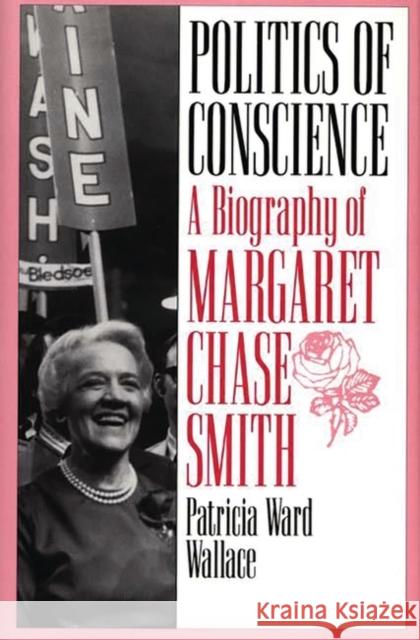Politics of Conscience: A Biography of Margaret Chase Smith » książka
Politics of Conscience: A Biography of Margaret Chase Smith
ISBN-13: 9780275951306 / Angielski / Twarda / 1995 / 272 str.
Politics of Conscience: A Biography of Margaret Chase Smith
ISBN-13: 9780275951306 / Angielski / Twarda / 1995 / 272 str.
(netto: 171,85 VAT: 5%)
Najniższa cena z 30 dni: 178,24
ok. 30 dni roboczych.
Darmowa dostawa!
Margaret Chase Smith was the most influential woman in the history of American politics. Her goal was to be a United States senator, not a woman senator, and she succeeded by overcoming gender, not by championing it. Smith began her political career as Maine's daughter and demonstrated nationally the New England virtues of honesty, hard work, frugality, and reticence. She became America's heroine when she courageously confronted Senator Joe McCarthy at the height of his power with her "Declaration of Conscience" speech. In her statement she championed the American right to criticize, to hold unpopular beliefs, and to practice free speech. Associating herself with the politics of conscience, Smith won three more terms in the Senate and sat on the powerful Armed Services, Appropriations, Space, Government Operations, and Intelligence committees. Altogether, she was in Congress 32 years and by the time her career ended she had established an enduring prototype for female and minority politicians.
This biography of Margaret Chase Smith is the first historical treatment of Smith to use her voluminous private papers as well as extensive interviews with Smith and her colleagues in Congress. As Maine's daughter, Smith was frugal, hard-working, reticent, and caustic. At age thirty-two she married, in scandal, state-politician Clyde Smith with whom she had been involved since she was sixteen and who was twenty-one years her senior. Smith came to Washington when Clyde was elected to Congress and, against his wishes, she became his secretary. When Clyde died in office in 1940, Smith played the widow's game and successfully ran for his seat. In the House during World War II, Smith sat on the powerful Naval Affairs Committee and, tutored by committee counsel Bill Lewis, developed a national constituency, the military, which in turn allowed her to better serve Maine's interests. Lewis directed Smith's first Senate campaign in 1948 when she won an upset victory by an astonishing margin. Overnight she became the darling of the Republican party, the heroine of women everywhere, and the only woman in the United States Senate. Immediately, she became embroiled with Joseph McCarthy and courageously confronted him with her Declaration of Conscience speech four years before a Senate majority censored him. Associating herself with politics of conscience, Smith was elected to three more terms and sat on the powerful Armed services, Appropriations, Space, Government Operations, and Intelligence committees. America's heroine was a political icon by the time she was defeated in 1972 at the age of seventy-four.











